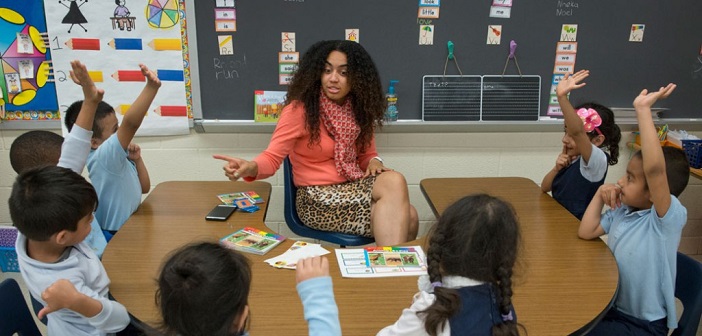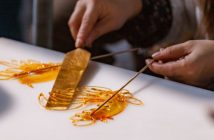The face of your typical international teacher in Beijing for a long time was mainly thought to be white, from North America or Europe. But in the recent past, the demographic of those seeking employment as teachers in Beijing and the greater China has continued to change. That has brought a culture shock of sorts for those in the education world, for parents, students, and the educators themselves. Your average international teacher now might still be from North America, Europe, or Australia, but even from these countries, their inherent cultural and racial diversity has made its way to China. Teachers of African descent, be they North American, European, or African are on the rise, and continue to steadily increase due to changing perceptions of ‘Black’ people as a whole. With that change however, comes some resistance in the way of prevailing stereotypes, racial insensitivity, or lack of awareness about what is acceptable and unacceptable when it comes to interacting with people from other races.
Preston*, an African American teacher has experienced some extent of this in his time as an English teacher living and working in Beijing. But recently, he faced what could be one of the most daunting experiences of his life as a person of color living and working in Beijing.
How long have you been teaching in China?
Three years and four months is how long I’ve been in Beijing. It was in my home city where I attended a networking event of inspiring young professionals. A group of artists, financiers, academics, and entrepreneurs mingling in one room. This group presented their best selves and I, an editor’s assistant at the time, spoke to everyone in the room. I found they all shared a few experiences in common. The most profound one was the experience of studying and working abroad. This was an experience I did not share with my peers. The idea of living abroad made me restless, so I succumbed to the idea. I researched a company to work with in Beijing. Within three weeks, I was on a plane to Beijing.
What are some of the highlights of your experiences teaching in China/ Beijing?
A highlight of working in Beijing is watching the slow progression of my students using the English language to communicate to each other and to me.

What form of culture shock, if any, do you continue to suffer from as a result of working as a teacher in Beijing?
A culture shock experience that I continue to deal with on a daily basis is the invasion of personal space. My coworkers, neighbors, students will get close to me to discreetly smell me, touch me, or take a photo/video of me. For example, last week these events happened in a two-hour time span where a coworker walked into my classroom during my lesson to record me without my permission. After that class, another employee grabbed my arm and said “very strong”. He didn’t verbally greet me beforehand so I was shocked that this [would]happen. Immediately after that incident, I walked into the classroom that I was to deliver a lesson in. I am writing on the chalkboard and I feel something crawling on my hand. I look down to see a student rubbing his fingers on the back of my palm. I turn around to see five students hovering around that student. I asked the students “what are they doing?” with a nervous laugh, then one student replies with a smile “Chocolate”. I was uncomfortable so I yelled for them to sit down in their seats so I could finish setting up the prepared lesson of the day.
Are there times when you have experienced culturally insensitive attitudes or behaviors from your students? What are some examples?
I have experienced racist attitudes from my students. The most recent interaction is being on the receiving end of expletives from some students and being licked by other students.

Tell us about the picture with the “slaves”.
The incident with the photo of “African prisoners abused by Europeans on a ship” was brought to me by my grade 6 students as I walked into the class to begin the lesson. The students pointed at the picture then pointed at me and said: “you, this is you”. My external response was to continue setting up for the lesson of the day. My internal reaction was one of curiosity. I continued with the lesson. When the class was over, the students returned to me after class with the book of the photo. I chose not to engage.
At first, what was your reaction to your students showing you this image?
My initial reaction to the scenario was curiosity. I am still curious to understand why the students did what they did. Since the incident, my coworker and I have questioned the students about it and the students never gave me a clear answer.
What would you advise other teachers of color/ foreign teachers who might have a similar experience to you while teaching in Beijing/China?
My advice to other expats of color in the education field is to always stay curious about the actions of your students; to do one’s due diligence in researching the culture, not only the history of the past but of current events including the media the youth is consuming. We are allowed to have authentic reactions to these situations. Do the groundwork to understand and continue to influence the environment we choose to live in.
Photos: janinesjourneys.com, Center for American Progress, The Guardian




